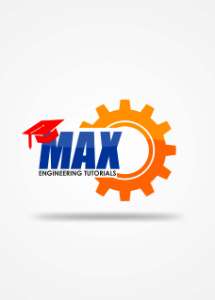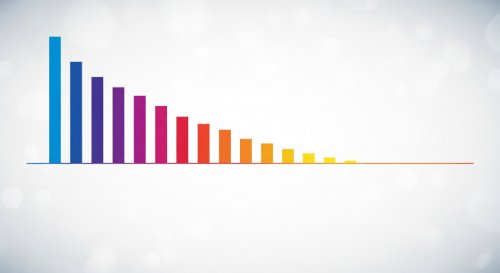Worked examples (7) - Convergence of Sequences | Convergence of Infinite Sequences and Series - Advanced Calculus (Undergraduate Advanced)
SPONSORED Get Personalized Tutoring NowStruggling with a tough concept or looking to advance your skills? Our expert tutors offer one-to-one guidance tailored to your unique needs.
Get instant support, clear explanations, and practical strategies to master even the most challenging subjects. With flexible scheduling and customized learning plans, success is just a session away.
Book your personalized tutoring today and start achieving your academic goals!
Get Personalized Tutoring NowStruggling with a tough concept or looking to advance your skills? Our expert tutors offer one-to-one guidance tailored to your unique needs.
Get instant support, clear explanations, and practical strategies to master even the most challenging subjects. With flexible scheduling and customized learning plans, success is just a session away.
Book your personalized tutoring today and start achieving your academic goals!
Struggling with a tough concept or looking to advance your skills? Our expert tutors offer one-to-one guidance tailored to your unique needs. Get instant support, clear explanations, and practical strategies to master even the most challenging subjects. With flexible scheduling and customized learning plans, success is just a session away. Book your personalized tutoring today and start achieving your academic goals!
 Convergence of Infinite Sequences and Series - Advanced Calculus (Undergraduate Advanced)This course provides a complete toolkit for the study of infinite sequences and series. It begins with a rigorous treatment of the convergence of sequences and the algebra of limits. The course then covers the foundational theory of infinite series and provides a comprehensive study of all standard tests for convergence, culminating in an introduction to power series.
The concepts of convergence and infinite series are essential in physics, engineering, and computer science. They are used to solve differential equations, analyse signals with Fourier series, calculate probabilities, and determine the accuracy of numerical approximations. This is the mathematical machinery behind precision in scientific modelling.
By the end of this course, you will be able to determine if an infinite sequence converges and find its limit. You will also be able to apply the complete suite of convergence tests—including the Integral, Comparison, Ratio, Root, and Alternating Series tests—to determine if an infinite series converges, and find the radius and interval of convergence for any power series.
This course is for students who have completed a foundational calculus course. It is the standard curriculum for a second-semester calculus (Calculus II) module and is a direct prerequisite for the study of differential equations, complex analysis, and advanced physics.
Convergence of Infinite Sequences and Series - Advanced Calculus (Undergraduate Advanced)This course provides a complete toolkit for the study of infinite sequences and series. It begins with a rigorous treatment of the convergence of sequences and the algebra of limits. The course then covers the foundational theory of infinite series and provides a comprehensive study of all standard tests for convergence, culminating in an introduction to power series.
The concepts of convergence and infinite series are essential in physics, engineering, and computer science. They are used to solve differential equations, analyse signals with Fourier series, calculate probabilities, and determine the accuracy of numerical approximations. This is the mathematical machinery behind precision in scientific modelling.
By the end of this course, you will be able to determine if an infinite sequence converges and find its limit. You will also be able to apply the complete suite of convergence tests—including the Integral, Comparison, Ratio, Root, and Alternating Series tests—to determine if an infinite series converges, and find the radius and interval of convergence for any power series.
This course is for students who have completed a foundational calculus course. It is the standard curriculum for a second-semester calculus (Calculus II) module and is a direct prerequisite for the study of differential equations, complex analysis, and advanced physics.
This course provides a complete toolkit for the study of infinite sequences and series. It begins with a rigorous treatment of the convergence of sequences and the algebra of limits. The course then covers the foundational theory of infinite series and provides a comprehensive study of all standard tests for convergence, culminating in an introduction to power series. The concepts of convergence and infinite series are essential in physics, engineering, and computer science. They are used to solve differential equations, analyse signals with Fourier series, calculate probabilities, and determine the accuracy of numerical approximations. This is the mathematical machinery behind precision in scientific modelling. By the end of this course, you will be able to determine if an infinite sequence converges and find its limit. You will also be able to apply the complete suite of convergence tests—including the Integral, Comparison, Ratio, Root, and Alternating Series tests—to determine if an infinite series converges, and find the radius and interval of convergence for any power series. This course is for students who have completed a foundational calculus course. It is the standard curriculum for a second-semester calculus (Calculus II) module and is a direct prerequisite for the study of differential equations, complex analysis, and advanced physics.
![[OAU, Ife] MTH 201: Mathematical Methods I](https://media.unidrills.com/avatars/learningTrack/OHoduvR7EGCLQ1QVppMK.JPEG) [OAU, Ife] MTH 201: Mathematical Methods IThis learning track delivers the complete mathematical toolkit required for a university-level science, engineering, or computing degree. It systematically covers the entire MTH 201 curriculum, building from the foundational principles of single-variable calculus - functions, limits, continuity, and differentiability - to the advanced methods of multivariable calculus, infinite series, numerical methods, and ordinary differential equations. This is the definitive preparation for advanced quantitative study.
This programme is designed for second-year students offering MTH 201 at Obafemi Awolowo University, Ile-Ife, Nigeria. It is also helpful for any student in a STEM field - including physics, engineering, and computer science - who requires a rigorous and comprehensive command of calculus and its applications.
This track delivers a full skill set in mathematical analysis and applied problem-solving. Graduates will be able to solve a wide range of problems, from optimising multivariable functions to modelling dynamic systems with differential equations and testing the convergence of infinite series. This programme directly prepares students for success in advanced courses in vector calculus, partial differential equations, and real analysis, providing the necessary foundation for a career in engineering, data science, or theoretical physics.
[OAU, Ife] MTH 201: Mathematical Methods IThis learning track delivers the complete mathematical toolkit required for a university-level science, engineering, or computing degree. It systematically covers the entire MTH 201 curriculum, building from the foundational principles of single-variable calculus - functions, limits, continuity, and differentiability - to the advanced methods of multivariable calculus, infinite series, numerical methods, and ordinary differential equations. This is the definitive preparation for advanced quantitative study.
This programme is designed for second-year students offering MTH 201 at Obafemi Awolowo University, Ile-Ife, Nigeria. It is also helpful for any student in a STEM field - including physics, engineering, and computer science - who requires a rigorous and comprehensive command of calculus and its applications.
This track delivers a full skill set in mathematical analysis and applied problem-solving. Graduates will be able to solve a wide range of problems, from optimising multivariable functions to modelling dynamic systems with differential equations and testing the convergence of infinite series. This programme directly prepares students for success in advanced courses in vector calculus, partial differential equations, and real analysis, providing the necessary foundation for a career in engineering, data science, or theoretical physics.
This learning track delivers the complete mathematical toolkit required for a university-level science, engineering, or computing degree. It systematically covers the entire MTH 201 curriculum, building from the foundational principles of single-variable calculus - functions, limits, continuity, and differentiability - to the advanced methods of multivariable calculus, infinite series, numerical methods, and ordinary differential equations. This is the definitive preparation for advanced quantitative study. This programme is designed for second-year students offering MTH 201 at Obafemi Awolowo University, Ile-Ife, Nigeria. It is also helpful for any student in a STEM field - including physics, engineering, and computer science - who requires a rigorous and comprehensive command of calculus and its applications. This track delivers a full skill set in mathematical analysis and applied problem-solving. Graduates will be able to solve a wide range of problems, from optimising multivariable functions to modelling dynamic systems with differential equations and testing the convergence of infinite series. This programme directly prepares students for success in advanced courses in vector calculus, partial differential equations, and real analysis, providing the necessary foundation for a career in engineering, data science, or theoretical physics.
![[UI, Ibadan] MAT 223: Real Analysis](https://media.unidrills.com/avatars/learningTrack/zfbegrFrlnYuveVIU3VI.JPEG) [UI, Ibadan] MAT 223: Real AnalysisThis learning track provides the complete theoretical machinery of single-variable calculus and analysis. We build the subject from first principles, establishing the rigorous logical framework required for advanced quantitative disciplines. This is the 'why' behind the mathematics that powers science and engineering.
This track is built for second-year engineering and physical science students, particularly those at the University Of Ibadan. It is also structured for any student requiring the same rigorous theoretical foundation for advanced quantitative study.
On completion, you will command the complete theoretical basis of single-variable calculus. You will construct formal proofs, rigorously analyse function behaviour, and determine the convergence of infinite series. This programme provides the non-negotiable prerequisite knowledge for advanced study in differential equations, complex analysis, and theoretical physics.
[UI, Ibadan] MAT 223: Real AnalysisThis learning track provides the complete theoretical machinery of single-variable calculus and analysis. We build the subject from first principles, establishing the rigorous logical framework required for advanced quantitative disciplines. This is the 'why' behind the mathematics that powers science and engineering.
This track is built for second-year engineering and physical science students, particularly those at the University Of Ibadan. It is also structured for any student requiring the same rigorous theoretical foundation for advanced quantitative study.
On completion, you will command the complete theoretical basis of single-variable calculus. You will construct formal proofs, rigorously analyse function behaviour, and determine the convergence of infinite series. This programme provides the non-negotiable prerequisite knowledge for advanced study in differential equations, complex analysis, and theoretical physics.
This learning track provides the complete theoretical machinery of single-variable calculus and analysis. We build the subject from first principles, establishing the rigorous logical framework required for advanced quantitative disciplines. This is the 'why' behind the mathematics that powers science and engineering. This track is built for second-year engineering and physical science students, particularly those at the University Of Ibadan. It is also structured for any student requiring the same rigorous theoretical foundation for advanced quantitative study. On completion, you will command the complete theoretical basis of single-variable calculus. You will construct formal proofs, rigorously analyse function behaviour, and determine the convergence of infinite series. This programme provides the non-negotiable prerequisite knowledge for advanced study in differential equations, complex analysis, and theoretical physics.